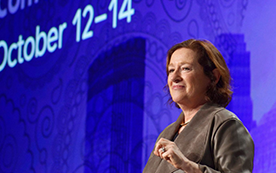
Your Money Blueprint
Fear, Shame and Anger are the most common emotions surrounding money.
The question is: where do our feelings about money come from?
Money has such a powerful impact on people that a sudden gain or loss in money can have a profound effect on some people’s personalities and attitudes. It can turn a nice person nasty or a happy person miserable. It can inspire greed and selfishness. More money can actually be a bad thing for some people. It’s clear that money evokes strong emotions. Everyone has deeply held and often subconscious beliefs about money.
People think the reason they may be miserable is because they have a lack of money. They believe that if they had more money they would have fewer problems, so they live their life to get more money. This is actually not true! The reason they don’t have more money is because of how they feel about their life and fundamentally, who they are (core beliefs about themselves). Who you are determines what you have. You define your money. You define the things around you. But money and the things around you can never truthfully define who you are.
We all develop an attachment with money that comes from the assumptions created from the experiences we have had growing up. These assumptions develop beliefs within us, around money, which in the most part, subconsciously control our feelings, thoughts and behaviours with money. These beliefs can also sabotage our success depending on the relationship that you hold with money. So our thoughts about money often stem from childhood. How our parents and others around us handled money provides the foundation for how we may handle money. It becomes a conditioning and we develop a money blueprint that is typically unconscious, developed in childhood and passed down from generation to generation within families and cultures. The more aware you become about your blueprint, then you can implement changes to your thinking patterns.
For example, as part of a retail store I used to work at, customers making a purchase who had their card declined would usually respond with a first reaction of embarrassment and afraid of the judgement that I would make. Another example, tell me how you will feel if you suddenly got news that you won the lottery, or inherited a vast sum of money? Elated, right? Relief – end of my money problems. I’m free! Or so you think. A sudden large lump sum of money can change people. Money can give them status and makes them feel powerful. Suddenly an air of arrogance sets in. Money also influences how people treat you. A homeless person walks into a high-end retail store and gets shooed out with contempt. A well-dressed man pulls up in a BMW and has the welcome mat rolled out for him. People have more respect for wealthy people. That’s the power of money.
Another point is that formal schooling does not include financial education, and so we go forth into the world with little or no financial roadmap and soon we are making bad financial decisions, running up debt and have ourselves entangled in a financial mess in next to no time.
The truth is that the problem isn’t money. The problem is how we approach money, how we think about money and how we handle money. People who constantly think negatively about money, tend to be plagued by money problems their whole life. People who believe that money is something within their control, are the ones who become more successful and ultimately increase their money. Those are the people who instead of overthink and complain about their lack of money, educate themselves about money. The secret is Financial Emotional Intelligence is the basis for growing wealth.
Remember money is simply a form of energy. It comes and goes according to your intentions. The clearer your intentions, the more the money flows. Therefore a change in our financial situation starts with a change in how we think about money. Clearing out the negative thoughts about money will remove the blockages that are preventing money from flowing to us.
We all need money to live and money does make life easier and more comfortable and gives us access to better services. While we should examine our feelings towards money and strive to manage money better, we should not allow it to consume us.
In today’s world, materialism and consumerism are driving people. Everyone is trying to keep up with everyone else with the best gadgets, cars, and houses. So deep is the need to impress that we feel embarrassed to tell our friends we can’t join them at that expensive restaurant when we don’t have money.
Again, what is driving this? It’s our emotions. We feel better about ourselves when we have the latest iPhone or walk around in designer labels. We want to impress people with how much money we have. Money validates us. Money makes us feel we are somebody, so essentially money is running lives and not enhancing it.
There’s nothing wrong with having nice things per se. However, if your world revolves around this, then you’ve lost sight of what’s really important in life. What many fail to realize is that there are worse things in life than not having money. Having no loved ones, having poor health, having no friends to offer support during tough times, having no spiritual connection, having no purpose in life.
Have you heard of the saying “money cannot buy you happiness” – it is true! The initial elation at the sudden abundance of money will quickly fade and you will seek further validation for the negative core beliefs you hold for yourself. What we should be striving for is to develop a healthier relationship with money.
In most cases, money will not fundamentally change who you are or what you believe. At your core, you will still be the same person with or without money. Similarly, if you are bad at handling a little money, you’ll be bad at handling a lot of money. It is all about the emotional attachment you have with money, which actually stems from the relationships with yourself.






